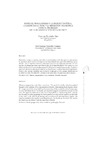Identificador persistente para citar o vincular este elemento:
https://accedacris.ulpgc.es/jspui/handle/10553/76049
| Campo DC | Valor | idioma |
|---|---|---|
| dc.contributor.author | Fernández Agis, Domingo | en_US |
| dc.contributor.author | González Campos, José Santiago | en_US |
| dc.date.accessioned | 2020-11-26T12:00:00Z | - |
| dc.date.available | 2020-11-26T12:00:00Z | - |
| dc.date.issued | 2011 | en_US |
| dc.identifier.issn | 1132-8177 | en_US |
| dc.identifier.other | Dialnet | - |
| dc.identifier.uri | https://accedacris.ulpgc.es/handle/10553/76049 | - |
| dc.description.abstract | Humanizar la muerte requiere, ante todo, el reconocimiento del valor que en sí misma tiene la experiencia de la muerte y la importancia trascendental que, para todo individuo, posee afrontar con el respaldo sanitario y emocional necesario ese momento decisivo. En este sentido, el enfoque que toma como base la idea de la imposibilidad de vivir la muerte, y no sólo la con frecuencia cuestionada preparación del personal sanitario para ayudar al paciente terminal a afrontarla, tiene mucho que ver en el escamoteo y ocultamiento de tal experiencia. Frente a esto hay que considerar que la muerte es algo que se vive, aunque obviamente no se sobrevive a ella. No sobrevivir a la muerte no resta valor a la experiencia de la muerte. | en_US |
| dc.description.abstract | Humanizing death requires, above all, recognition of the value itself has the experience of death and the critical importance to every individual, has to face health and emotional support needed that moment. In this sense, the approach builds on the idea of the impossibility of experiencing death, and not just the question often preparing the health personal to help terminal patients to deal with it, has much to do with the skimming and concealment of such experience. Against this must be considered that death is something that you live, but do not survive it. Not survive the death does not detract from the experience of death. | en_US |
| dc.language | spa | en_US |
| dc.relation.ispartof | Laguna | en_US |
| dc.source | Laguna: Revista de Filosofía [ISSN 1132-8177], n. 29, p. 97-108 | en_US |
| dc.subject | 3212 Salud pública | en_US |
| dc.subject | 720601 Filosofía de la vida | en_US |
| dc.subject | 610801 Muerte | en_US |
| dc.subject.other | Muerte | en_US |
| dc.subject.other | Pragmatismo | en_US |
| dc.subject.other | Ética | en_US |
| dc.subject.other | Medicina | en_US |
| dc.subject.other | Filosofía | en_US |
| dc.subject.other | Foucault | en_US |
| dc.subject.other | Death | en_US |
| dc.subject.other | Pragmatism | en_US |
| dc.subject.other | Ethics | en_US |
| dc.title | Entre el pragmatismo y la inquietud ética: La medicina actual y la reflexión filosófica ante el problema de la humanización de la muerte | en_US |
| dc.title.alternative | Between pragmatism and ethical uneasiness. The medical actually and philosophical thought to the problem of the humanization of death | en_US |
| dc.type | info:eu-repo/semantics/Article | en_US |
| dc.type | Article | en_US |
| dc.identifier.url | http://dialnet.unirioja.es/servlet/articulo?codigo=3835266 | - |
| dc.description.lastpage | 108 | en_US |
| dc.identifier.issue | 29 | - |
| dc.description.firstpage | 97 | en_US |
| dc.investigacion | Ciencias de la Salud | en_US |
| dc.investigacion | Artes y Humanidades | en_US |
| dc.type2 | Artículo | en_US |
| dc.contributor.authordialnetid | No ID | - |
| dc.contributor.authordialnetid | 3021089 | - |
| dc.identifier.dialnet | 3835266ARTREV | - |
| dc.description.numberofpages | 12 | en_US |
| dc.utils.revision | Sí | en_US |
| dc.identifier.ulpgc | Sí | en_US |
| dc.contributor.buulpgc | BU-MED | en_US |
| item.grantfulltext | open | - |
| item.fulltext | Con texto completo | - |
| crisitem.author.dept | GIR IUIBS: Nutrición | - |
| crisitem.author.dept | IU de Investigaciones Biomédicas y Sanitarias | - |
| crisitem.author.dept | Departamento de Enfermería | - |
| crisitem.author.parentorg | IU de Investigaciones Biomédicas y Sanitarias | - |
| crisitem.author.fullName | González Campos, José Santiago | - |
| Colección: | Artículos | |
Visitas
111
actualizado el 10-ene-2026
Descargas
27
actualizado el 10-ene-2026
Google ScholarTM
Verifica
Comparte
Exporta metadatos
Los elementos en ULPGC accedaCRIS están protegidos por derechos de autor con todos los derechos reservados, a menos que se indique lo contrario.
